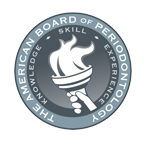
Introduction:
As the crisp embrace of winter descends upon us, enveloping the surroundings in a serene blanket of snow, our oral health encounters a distinctive set of challenges. The plummeting temperatures bring forth an array of concerns for our teeth and gums, potentially giving rise to discomfort and issues that demand attention. Cold weather has a direct impact on our dental well-being, as teeth may become more sensitive and susceptible to adverse conditions. The contraction of teeth in response to the cold can lead to minute cracks in the enamel, unraveling the potential for heightened sensitivity. Gums, too, are not immune to the seasonal shifts, often contracting and causing discomfort. we delve into the intricacies of how the winter weather affects our oral health and, more importantly, explore viable grafting solutions to ensure that our smiles remain warm, vibrant, and healthy despite the challenges posed by the chilly season.
Summary
Understanding Cold Weather’s Impact on Dental Health
1. Tooth Sensitivity in Winter:
Cold-Weather Grafting Solutions:
Understanding Cold Weather’s Impact on Dental Health:
1. Tooth Sensitivity in Winter:
As temperatures plummet, so does our teeth’s resilience to external stimuli, often manifesting as increased tooth sensitivity during the cold weather. The physiological response to the cold is a natural contraction of the teeth, which, though imperceptible, sets the stage for potential dental concerns. This contraction can create minuscule cracks in the protective enamel layer, the outermost shield of our teeth. As the enamel fissures, it unveils the delicate dentin beneath, a porous tissue housing microscopic tubules that connect to the tooth’s nerve center. Subsequently, this exposure can lead to heightened sensitivity, making the teeth more responsive to extremes of temperature, particularly hot and cold sensations.
The intricate network of dentinal tubules acts as a direct conduit to the nerve endings within the tooth, and when exposed, these nerve endings become more susceptible to external stimuli. The result is a heightened response, often experienced as discomfort or pain when consuming hot beverages, indulging in cold treats, or even braving the winter air. Understanding this physiological interplay between cold weather and tooth sensitivity is crucial for implementing effective preventive measures and targeted grafting solutions to mitigate potential issues and ensure ongoing dental well-being during the winter months.
2. Dry Mouth Concerns:
The arrival of cold weather frequently heralds the intrusion of dry air, a climatic condition that extends its influence beyond simply chilling temperatures. This environmental shift can usher in dehydration, a factor that significantly contributes to the onset of a dry mouth. In the winter, individuals may not feel as compelled to stay hydrated as they would during warmer months, leading to decreased saliva production. Saliva, often underappreciated, plays a pivotal role in maintaining optimal oral health. Beyond its lubricating function, saliva serves as a natural defender, neutralizing acids that can erode enamel and acting as a rinsing agent to sweep away lingering food particles. However, in a dry mouth environment, this protective mechanism is compromised, heightening the vulnerability of teeth and gums to potential issues.
The repercussions of a dry mouth extend beyond mere discomfort, venturing into the realm of increased risks for cavities and gum problems. Without an ample supply of saliva to cleanse and fortify the oral environment, harmful bacteria can flourish. These bacteria, in conjunction with the acids produced in the mouth, create a conducive environment for the development of cavities. Moreover, the absence of sufficient saliva diminishes the mouth’s natural defense against bacterial proliferation, potentially leading to inflammation and other gum-related complications. Thus, as the cold air ushers in dryness, it becomes imperative to adopt measures that counteract the drying effects and safeguard oral health throughout the winter season.
3. Gum Sensitivity:
Gum sensitivity emerges as another significant concern during the winter months, as the cold air exerts its influence on the delicate gum tissues. Cold temperatures prompt the contraction of these tissues, potentially resulting in heightened gum sensitivity. This physiological response can be particularly pronounced in individuals with pre-existing gum issues, where the winter weather may act as an exacerbating factor, intensifying the discomfort they experience. As the gums contract in response to the cold, individuals may notice increased sensitivity, especially when consuming hot or cold foods and beverages. The sensation of discomfort can range from a mild twinge to more pronounced pain, depending on the severity of the gum sensitivity and the overall health of the gum tissues.
For those already grappling with gum issues such as gingivitis or periodontitis, the winter weather poses an additional challenge. The contraction of gums in colder temperatures may aggravate existing inflammation, leading to heightened discomfort and potential complications. It becomes imperative for individuals with gum sensitivity or existing gum problems to be particularly vigilant during the winter, adopting practices that mitigate the impact of cold air on their gum health. This may include maintaining a consistent oral hygiene routine, using gentle oral care products, and seeking advice from a dental professional to address and manage any underlying gum conditions exacerbated by the winter weather.
Cold-Weather Grafting Solutions:
1. Desensitizing Toothpaste:
Investing in a high-quality desensitizing toothpaste can be a game-changer for individuals grappling with increased tooth sensitivity, especially during the colder months. These specialized toothpaste formulations are specifically designed to address and alleviate the discomfort associated with tooth sensitivity. One of the key components found in such toothpaste is potassium nitrate, a compound known for its desensitizing properties. Potassium nitrate works by penetrating the microscopic tubules in the dentin, the layer beneath the enamel, and effectively blocking the nerve pathways responsible for transmitting pain signals. This helps to create a protective barrier that shields the nerves from external stimuli, such as temperature changes, and provides relief from the heightened sensitivity experienced in cold weather.
Additionally, some desensitizing toothpaste may also contain strontium chloride, another active ingredient that contributes to alleviating tooth sensitivity. Strontium chloride acts by forming a layer over the exposed dentin, providing a barrier that helps insulate the nerves from external irritants. Regular use of desensitizing toothpaste, as recommended by dental professionals, can contribute significantly to managing and reducing tooth sensitivity, allowing individuals to enjoy a warm and comforting experience even in the face of chilly weather. It’s important to incorporate these toothpaste products into a consistent oral hygiene routine for optimal effectiveness in combating tooth sensitivity.
2. Stay Hydrated:
Combatting dry mouth, a common winter woe, begins with the simple yet crucial practice of staying adequately hydrated. The colder weather tends to usher in dry air, which, combined with potential neglect in maintaining hydration levels, can lead to a parched oral environment. Encouraging patients to drink sufficient water throughout the day becomes paramount in sustaining optimal saliva production. Saliva plays a vital role in maintaining oral health by not only moisturizing the mouth but also serving as a natural cleanser, flushing away debris and assisting in the neutralization of acids. By staying hydrated, individuals can counteract the drying effects of winter and promote an environment conducive to overall oral well-being.
In addition to regular hydration, individuals experiencing dry mouth can further stimulate saliva flow by incorporating sugar-free gum or lozenges into their daily routine. Chewing gum or sucking on lozenges prompts an increase in saliva production, providing a welcome relief for dry mouth symptoms. Opting for sugar-free varieties is essential to avoid introducing additional sugars that may contribute to dental issues. These simple yet effective measures not only combat the discomfort associated with dry mouth but also contribute to a more saliva-rich environment, promoting a natural defense against cavities and gum problems exacerbated by the winter weather.
3. Protective Lip Balm:
The arrival of cold weather often brings with it the unwelcome side effect of chapped lips, a condition that, if left unattended, can lead to discomfort and irritation around the mouth. The instinct to lick dry or chapped lips, a common response to alleviate the discomfort, can inadvertently exacerbate the issue by removing natural oils and moisture from the delicate lip skin. This repeated licking can further contribute to irritation, making it crucial to recommend the use of a protective lip balm as a preventative measure. A high-quality lip balm acts as a barrier, sealing in moisture and shielding the lips from the harsh effects of cold winds. By preventing dryness and cracking, lip balm not only promotes overall oral comfort but also helps mitigate the risk of developing oral issues associated with chapped lips.
When advising patients on lip care during the colder months, it’s essential to recommend lip balms with hydrating ingredients such as beeswax, shea butter, or coconut oil. These ingredients provide a nourishing layer that not only prevents moisture loss but also aids in the recovery of already chapped lips. Encouraging the regular application of lip balm, especially before venturing outdoors, becomes a simple yet effective strategy for ensuring that individuals maintain soft, supple lips and avoid the potential discomfort and irritation that can arise from the cold weather’s impact on this sensitive facial area.
4. Gentle Oral Care Routine:
Promoting a gentle oral care routine takes center stage, particularly for individuals grappling with gum sensitivity, as harsh brushing or abrasive mouthwashes can exacerbate existing discomfort. Recommending the use of a soft-bristled toothbrush becomes crucial in this context, as it helps to clean teeth effectively without causing unnecessary irritation to sensitive gum tissues. The soft bristles are gentle on both teeth and gums, ensuring that individuals can maintain proper oral hygiene without the risk of further aggravating their sensitivity during the winter months.
In addition to opting for a soft-bristled toothbrush, it’s equally important to suggest mild, non-alcoholic mouthwashes. Alcohol-based mouthwashes can be harsh and potentially contribute to dry mouth, a condition already heightened in the winter. Non-alcoholic alternatives provide an effective means of maintaining oral cleanliness without introducing additional discomfort. These gentler mouthwashes can still contribute to fresh breath and a clean feeling without compromising the well-being of sensitive gums. By advocating for a gentle oral care routine, individuals can navigate the winter season with a focus on maintaining both oral health and overall comfort, mitigating potential issues associated with gum sensitivity.
FAQs
Q1: Is tooth sensitivity in cold weather common?
A1: Yes, tooth sensitivity in cold weather is a common issue. The contraction of teeth due to the cold can lead to increased sensitivity.
Q2: How can I protect my teeth from the cold?
A2: Using desensitizing toothpaste, staying hydrated, and incorporating fluoride treatments are effective ways to protect your teeth from the cold.
Q3: Can dry mouth in winter affect my oral health?
A3: Yes, dry mouth in winter can increase the risk of cavities and gum issues. Staying hydrated and using sugar-free gum or lozenges can help alleviate dry mouth symptoms.
Q4: What is the best way to care for chapped lips in winter?
A4: Use a protective lip balm to prevent chapped lips. Avoid excessive licking, as this can lead to irritation around the mouth.
Q5: How often should I use fluoride treatments?
A5: The frequency of fluoride treatments depends on individual needs. Consult with your dentist to determine the most suitable schedule for your oral health.
Conclusion:
The winter season presents distinct challenges to our oral health, including heightened tooth sensitivity, dry mouth concerns, and increased gum sensitivity. To address these issues, incorporating desensitizing toothpaste, staying hydrated, adopting a gentle oral care routine, and using protective lip balm are crucial strategies. These measures not only alleviate discomfort but also contribute to overall oral well-being during the colder months. By understanding the impact of winter weather on our oral health and implementing targeted solutions, we can ensure that our smiles remain resilient and healthy throughout the season. Happy Winter, and here’s to a year-round radiant smile!
Discover a wealth of information and resources on dental care, oral health, and related topics by exploring our website at https://premierperiodonticspa.com/ Whether you are seeking comprehensive insights into maintaining oral well-being or have specific inquiries, our website is crafted to serve as a valuable hub for all your dental needs. For personalized assistance or to schedule a consultation, feel free to contact our dedicated team at (267) 908-4867. Your smile is our utmost priority, and we are devoted to providing you with the information and support necessary to make your dental experience both comfortable and successful. Trust us to prioritize your oral health journey, and we eagerly anticipate being a partner in your pursuit of a healthy and radiant smile.








